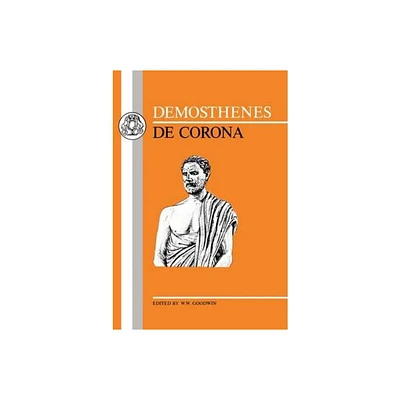Home
Alexander Aphrodisiensis, "De anima libri mantissa": A new edition of the Greek text with introduction and commentary
Loading Inventory...
Barnes and Noble
Alexander Aphrodisiensis, "De anima libri mantissa": A new edition of the Greek text with introduction and commentary
Current price: $210.00


Barnes and Noble
Alexander Aphrodisiensis, "De anima libri mantissa": A new edition of the Greek text with introduction and commentary
Current price: $210.00
Loading Inventory...
Size: OS
*Product Information may vary - to confirm product availability, pricing, and additional information please contact Barnes and Noble
R. W. Sharples provides a new edition, with introduction and commentary in English, of the Greek text. The Mantissa is a collection of short discussions, transmitted as a supplement to the treatise
On the Soul
by the Aristotelian commentator Alexander of Aphrodisias (c.200 AD). The collection includes discussion of a range of topics, among them the nature of soul and intellect, theories of how seeing takes place, issues in ethics, and the nature of fate. The text is based upon a new collation of the principal manuscript, the ninth century Venetus Marcianus graecus 258, and the apparatus corrects Bruns' misreportings of the principal manuscript and of the others that he used. Account has also been taken of the medieval Arabic and Latin versions of some of the sections which circulated independently, notably
On Intellect
which had a substantial influence on medieval philosophy. The introduction is chiefly concerned with the manuscripts and the relation between them. The commentary is based on the notes to the
editor's English translation of the work
(London: Duckworth and Ithaca: Cornell UniversityPress, 2004); however, the commentary also takes into account more recent work on the collection by various scholars.
On the Soul
by the Aristotelian commentator Alexander of Aphrodisias (c.200 AD). The collection includes discussion of a range of topics, among them the nature of soul and intellect, theories of how seeing takes place, issues in ethics, and the nature of fate. The text is based upon a new collation of the principal manuscript, the ninth century Venetus Marcianus graecus 258, and the apparatus corrects Bruns' misreportings of the principal manuscript and of the others that he used. Account has also been taken of the medieval Arabic and Latin versions of some of the sections which circulated independently, notably
On Intellect
which had a substantial influence on medieval philosophy. The introduction is chiefly concerned with the manuscripts and the relation between them. The commentary is based on the notes to the
editor's English translation of the work
(London: Duckworth and Ithaca: Cornell UniversityPress, 2004); however, the commentary also takes into account more recent work on the collection by various scholars.


















